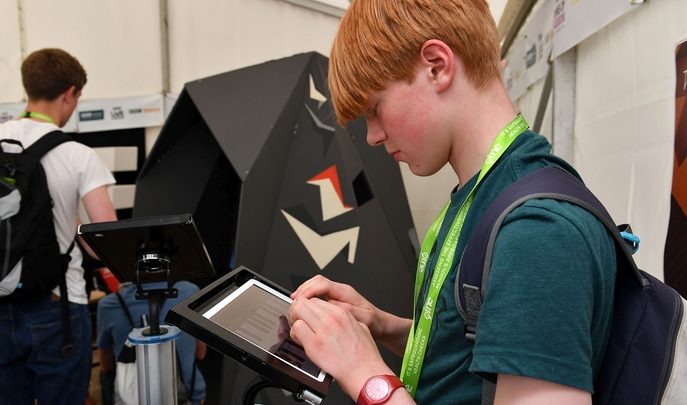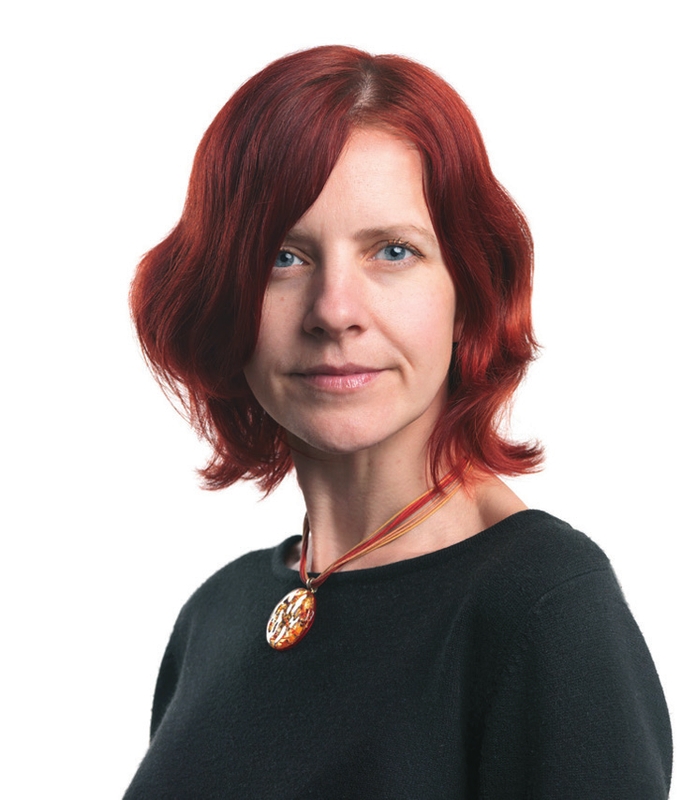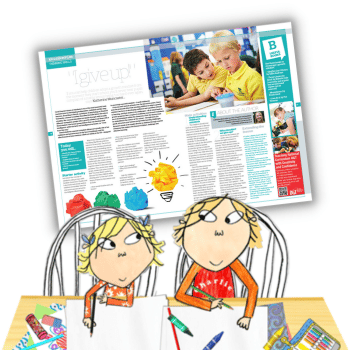Festival Of Education 2016, Day 2 – Matthew Syed And Stephen Lockyer On Mindset

Helen Mulley hears why schools themselves should adopt a growth mindset to learn from failures, but also how 'mindset' is becoming an empty buzzword…

- by Helen Mulley

Session 5
Mathew Syed – Black Box Thinking
‘The interpretation of failure, challenge and struggle is at the heart of the difference between a growth and a fixed mindset,’ said Mathew Syed, whose two books both try to understand the psychological and cultural conditions that enable us to flourish. “We need a psychological revolution,” he insisted.
It didn’t sound like entirely untrodden ground, but it was convincingly delivered, with plenty of underpinning research – what was new, to me at least, was the way Syed used the aviation and healthcare industries as examples of institutional growth and fixed mindsets respectively.
Both are ‘safety critical’, he observed – but in aviation, the attitude is ‘we need every learning opportunity; every bit of data’. If two pilots nearly hit each other in mid-air, they voluntarily file a report. And that data is used for improvement. If there is a crash, there are two indestructible black boxes – making failure ‘data rich’. And as a result, Syed concluded, the industry has a phenomenal safety record.
In healthcare, however, there is a very different attitude to failure, he insisted. It’s not acceptable; doctors are seen as talented and consultants, at the top of the profession, are supposed to be infallible. When things don’t turn out as we would wish, there is evasion, self-justification and blame, rather than an attempt to learn from what went wrong, so it doesn’t happen again. And so, sadly, it happens again and again.
The lesson that could – should? – be taken for the education system is profound. Because yes, Syed argued, we need to instil a growth mindset in our students…but above all, our schools should themselves be growth-mindset institutions, in search of improvement, all the time, and seeing every failure as a brilliant opportunity to get better.
Session 6
Stephen Lockyer – Mindset, the false panacea for education’s ills?
By way of contrast, I thought I’d pop into a conveniently timed session that seemed to offer a different perspective on mindsets. Lockyer is definitely funnier than Syed [opening joke: “We’ve all come in today to some news that’s difficult, perhaps, and a bit emotional. I know, I know; water – two quid a bottle.”]. And he’s concerned that ‘mindset’ has become diluted to little more than pithy statements on wall displays.
He may well have a point, and the teachers in the audience certainly had a lot of sympathy with what he was saying. Having come directly from hearing Syed speak, I felt Stephen misrepresented him a little (possibly in part for comic effect), claiming that the author now presents growth mindset as a magic pill that will enable anyone to do anything – but nonetheless, it’s true that simply parroting stock phrases is not going to result in success.
We need to think of mindset – as, indeed, Dweck does – as a continuum, Stephen argued. Stop putting children in one box or another, but develop a class culture of moving from fixed thinking to growth thinking (he termed it a ‘stretch mindset’; trademark pending?) – and including limitations as part of that (there are some things some of us will never be able to do – and that’s OK).
I understand Lockyer’s notion of the ‘boomerang research cycle’; we’ve all seen it happen time and time again with pedagogical fads. I’m reluctant, though, to put ‘growth mindset’ in the category of ‘things we’ll look back and laugh in disbelief about in 10 years’ time’. And actually, as long as we keep our minds on the core concept, and reject poor practice based on an imperfect understanding of it… I think Lockyer probably wouldn’t categorise growth mindset like that, either. …and that’s me done, near enough, for another year. I’m going to treat myself to the Shakespeare Live lesson with BBC Learning, in the main marquee in about 20 minutes’ time – and then see how long it takes me to get round the M25. Next year’s Festival of Education takes place on 22-23 June. Whatever your role in education, I thoroughly recommend it as a source of entertainment, inspiration, challenge and encouragement. Although you might like to bring your own bottle of water…
Read more of 2016 Festival of Education coverage here, here and here.











